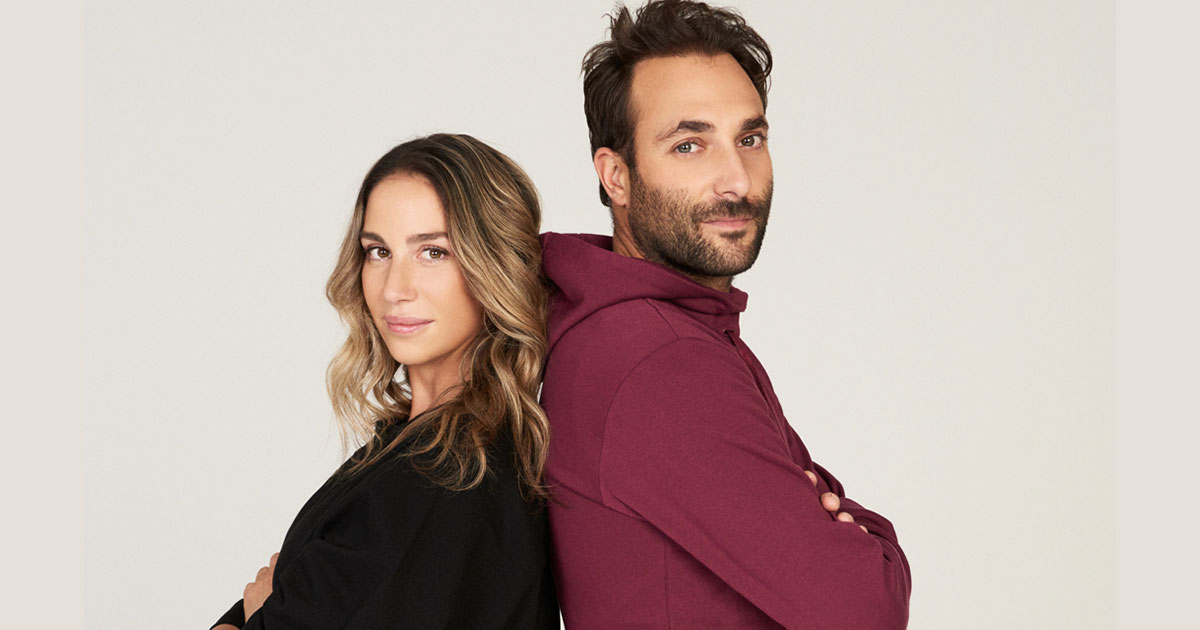Expert Pilates Instruction at Home
The Origin Story of Frame

Last Updated: By TRUiC Team
Pilates offers myriad benefits for overall health and fitness. However, if you want to participate, you traditionally have to go to a Pilates studio that has the proper equipment (called Pilates reformers) and instructors to help you use it. This obviously isn’t convenient for everyone.
Frame bills itself as a first-of-its-kind digitally connected Pilates reformer for home use, offering convenient access to low-impact, full-body workouts taught by best-in-class instructors. This is its story.
From Injured Athlete to Entrepreneur
Frame co-founder and CEO Melissa Bentivoglio was prescribed Pilates following a sports injury. She grew to love the workouts, finding this particular exercise regime to be one of the most effective she had come across. She began to pursue Pilates fitness instruction and training, but quickly identified a problem: Existing Pilates reformers couldn’t be used at home. Instead, you had to visit a Pilates studio, which limited access to those with the time and money to take classes outside their homes.
“Pilates reformers are not something that exists in people's homes,” she says. “You typically have to go into a large group class and or take a private session. So [she and co-founder Lee Belzberg] decided that we wanted to transcend the way Pilates was being practiced. We wanted to make it more accessible to pilates enthusiasts and… everybody.”
In addition, Lee notes that existing Pilates equipment market had room for innovation in general. “That’s what we wanted to change and disrupt,” he says.
Enter Frame’s new, proprietary reformer. “We now have created the solution, which is you can have a reformer in your home that's beautifully designed, that looks like a beautiful piece of art or a piece of furniture,” Melissa says. “You also have the user interface to go along with it, so that you don't have to be intimidated by not understanding how to sequence or even how to tackle a workout on a reformer, because it can be perceived as complicated.”
Second Design
The reformer that Frame offers is actually the second version that Melissa came up with. Previously, she created a reformer for her brick-and-mortar Pilates studio in Toronto. Although she loved that work, the studio had to shut down permanently due to the covid-19 pandemic.
Still, she had created a useful piece of equipment after an “amazing but very challenging experience,” and she didn’t want that work to go to waste. So she told Lee about an idea she had for a home version of a Pilates reformer and asked him to partner with her to bring it to market.
He was generally on board, but he wanted to flesh out the design and business plan to make sure the concept would work over the long term. “I come from a background where I work with a ton of different businesses,” he says. “When I look at those businesses, the successful ones that I've seen, they all have a blueprint of exactly understanding the market, understanding research that goes into deciding if this is something that you want to pursue.”
Together, they came up with the business blueprint for Frame and got the company off the ground. Melissa says its reformer “offers flexible on-demand and live experiences that create a fully personalized workout in the comfort and convenience of home. Think a Peloton but for reformer Pilates and more.”
The reformer is sleek and modern, with innovative features like color-coded spring weights that can be adjusted with the push of a button. It can be used by anyone regardless of height, weight, or body type. A 24-inch, Bluetooth-enabled touchscreen lets you view workouts that can be sorted by muscle group, instructor style, or just what you happen to be in the mood for. What’s more, Frame tracks your progress and learns your fitness goals over time.
Making Pilates Accessible
Lee’s long-term goal for Frame is nothing less than to “disrupt the entire market of Pilates” by making it more accessible.
“For us, it's not only the D to C market, which is the consumer market, but it's also the B to B market, which has a huge appetite for [Pilates reformers],” he says. “And we get emails every single day to put our products in all these REITs condominiums, hotel chains, amongst others, micro Gyms, and then also people that want to open studios. So for us, it's creating new products. We have a Pilates box that is just part of our repertoire, and then [we’re] also starting [to sell] merchandise like clothing, socks, and Pilates balls, amongst other things.”
Be Yourself and Trust Your Gut
Melissa advises early-stage entrepreneurs to “trust your gut” when it comes to building their businesses.
“I'm very intuitive, and I think that a lot of entrepreneurs have a built-in intuition that often is ignored,” she says. According to Melissa, people should trust that intuition when hiring and making other key business decisions.
Lee’s number-one piece of advice to early-stage entrepreneurs is simple: Be true to your own vision and take risks.
“I just think that people look at all the risks that are involved in starting a business, and immediately the advice that they'll typically give you is like, don't do it, but as blatant as possible. [But] if you have something that you believe in and that you think will be disruptive, go for it. I just think that there aren’t enough entrepreneurs that are really out there to take the risk. And I think that if you are one of those entrepreneurs, take the risk. You only have one life.”





